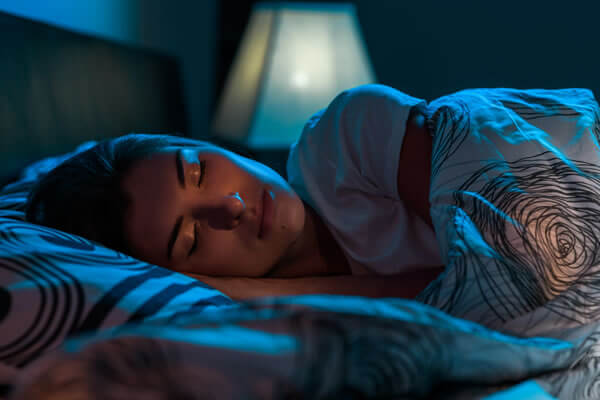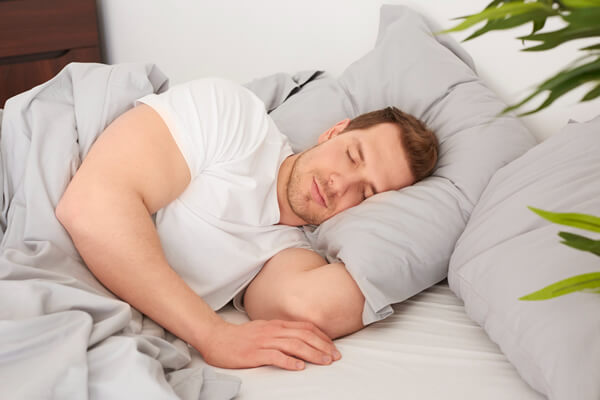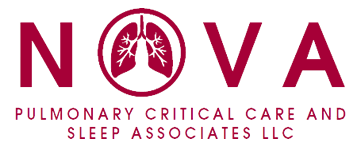Why Choose our Lansdowne Sleep Clinic?
- Offering the best in quality sleep care for patients suffering with sleep disorders.
- We offer inpatient and outpatient diagnosis & treatments at our affiliate hospital, Inova Loudoun in Lansdowne.
- Dr. Aditya Dubey is certified by the American Board of Internal Medicine in sleep medicine.
- Highly rated by patients across the DC, Maryland, Virginia region.
- We are located near our friendly neighbors at Loudoun Family Pharmacy
Do you struggle to stay awake during the day? Are your nights filled with restless tossing and turning? Often, sleep challenges can be traced to undiagnosed sleep disorders. If you suspect you may have a sleep disorder, talk with one of our pulmonary and sleep specialists in Lansdowne, VA today.
Sleep disorders
Sleep disorders can interfere with your ability to fully rest, decrease your daytime focus, and cause long-term health problems.
Symptoms of sleep disorders
You might have a sleep disorder if you:
- Feel tired during the day
- Have difficulty focusing at work
- Toss and turn during the night
- Snore
- Have headaches or a sore throat in the morning
- Sometimes wake up in the middle of the night gasping or snorting
If you’re not sure whether or not you suffer from these symptoms, ask your partner. You can also keep a journal tracking your hours of sleep, energy levels, caffeine and alcohol intake, bedtime, and other sleep patterns.
Contact Our Sleep Doctor and Sleep Study Specialists in Lansdowne, VA
At our sleep center, specialists help individuals overcome sleep disorders every day. Our specialists investigate the causes behind lack of rest, conduct sleep studies, and create treatment plans for better sleep. Click here to learn more about our pulmonary and critical care treatment.
How a sleep study can help
Often, our sleep center conducts sleep studies to help patients determine the exact cause of their restlessness. This allows them to recommend effective treatments for better rest.
What is a sleep study?
A sleep study is a simple test to determine the causes of grogginess, insomnia, and other sleep challenges. During a sleep study, specialists monitor your body’s signals during the day or as you sleep. These can reveal the specific sleep disorder that you have and inform treatment plans.
Types of sleep studies
Our sleep clinic in Lansdowne, VA offers four types of sleep studies. Your sleep specialist can recommend the study that’s best for you.
The four types of studies are:
- Polysomnogram (PSG) – During a PSG, our sleep center will measure your body movement, heart rate, brain activity, eye movements, blood pressure, and other vital signs. We can then interpret this data to determine whether you suffer from one of many sleep disorders, including:
- Circadian rhythm disorders
- Sleep-related movement disorders
- Hypersomnia
- Obstructive sleep apnea
- Insomnia
- And more
- Multiple Sleep Latency Test (MSLT) – The MSLT is used to diagnose narcolepsy or track the progress of an existing sleep treatment. For a MSLT, a technician from our Lansdowne, VA sleep clinic will test your brain and eye activity during five 20-minute nap periods during the day. Depending on your sleepiness during these tests, your sleep treatment may be altered.
- Maintenance of Wakefulness Test (MWT) – The MWT tests daytime sleepiness. It’s primarily employed to ensure safety, especially for those who work in transportation or operate heavy machinery.
- Home Sleep Test – A home sleep test is designed to detect moderate to severe obstructive sleep apnea. You’ll pick up a small device from our Lansdowne, VA sleep clinic, receive instructions on its use, and return it after testing your sleep patterns.
Sleep study results and treatment
Once you’ve completed a sleep study, a specialist at our sleep center will evaluate your results. You’ll hear from your specialist about a week after your study. Occasionally, your specialist may prescribe a secondary study for additional data before recommending treatment. Every individual is unique. As a result, every treatment plan is different. Your sleep specialist will look at your sleep study results and listen to your symptoms to determine the right methods for you.
Treatment options may include:
- Medication
- Lifestyle changes
- Oral sleeping device
- CPAP machine
- Treatment of underlying medical conditions
- And more
Don’t Let Lack of Sleep Impact your Quality of Life
At Nova Pulmonary Critical Care and Sleep Associates, our team of dedicated and talented sleep doctors and specialists are here to help. Our Lansdowne, VA sleep clinic is ready to help you overcome nighttime restlessness and daytime grogginess. With the comprehensive information provided by a sleep study, we can start you on your unique journey to an energized life.


NOVA Pulmonary Critical Care and Sleep Associates Testimonials
I had trouble sleeping and was looking for a sleep center in Virginia to help me with my insomnia. I am grateful I found NOVA Pulmonary Critical Care and Sleep Associates. The doctors and the staff are compassionate and friendly. Moreover, they are conveniently located by Lansdowne Hospital Virginia. ~ patient Leesburg, VA
I cannot recommend this place highly enough. I came in a couple of years ago with a mysterious cough and, long story short, my cough variant asthma ( which I didn’t even know was a thing) is well controlled and vastly improved. Not only is Dr. Dubey a fantastic physician but the staff and techs are all so personable and professional. Dr. Dubey also has treated my sleep apnea and now I sleep well and comfortably. This is a totally professional and quality organization! ~ patient, Ashburn, VA
Dr. Dubey has been so helpful with my sleep disorder, sleep apnea and I underwent some tests. He has is very supportive, easy to talk to and treats me like a family member. I have never had such a good experience with another doctor as I have had at NOVA Pulmonary Critical Care and Sleep Associates. I highly recommend them. The doctors and staff here are friendly and compassionate. ~ patient, Chantilly, VA
Great practice! Doctor is very attentive and professional. I did not have to wait for any of my appointments once in the office, easy booking online, and the receptionist is lovely. Feel like family now! Will definitely go back for any respiratory problems I have in the future! I highly recommend NOVA Pulmonary Critical Care and Sleep Associates!!~ patient, Herndon, VA
NOVA Pulmonary Critical Care and Sleep, LLC – Dr. Dubey has been tremendous find for me. We relocated from Texas and I was in desperate need of a Pulmonary Specialist. He wasted no time in getting me tested, X-rays and then on a prescription, as he diagnosed me with Asthmatic Allergens. I was elated that someone could clinch the problem and administer diagnostic care that other physicians struggled to do over the past 5 years. He is a doctor who is very proactive and his staff is delightful and personable. I highly recommend Dr. Dubey!~ patient, Leesburg, VA
I really enjoy Dr. Dubai and his assistant, Natasha. They are personable and caring with the whole process of taking a sleep test, getting acquainted with the CPAP machine and life with sleep apnea. It’s always an enjoyable experience whenever I go in!~ patient, Lansdowne, VA
I booked an appointment with NOVA Pulmonary and Sleep Associates as I suffer from poor sleep and high blood pressure. The office staff is friendly, excellent and very efficient. They take care of things immediately. They value your time and don’t keep you waiting – they meet you at the appointed time. I would highly recommend this office for pulmonary care. Thanks to the staff and Dr. Dubey for excellent service. ~ patient, Lansdowne, VA
I was referred to the board certified sleep specialists at NOVA Pulmonary and Sleep Associates by my primary care physician because I had difficulty falling asleep. In my opinion, the doctor here are very knowledgeable! They take their time to answer your questions and explain all of my treatment options. The staff is easy to work with as well.~ patient, Lansdowne, VA
Dr. Dubey has taken incredible care of me during my illness. He has brought me back to recovery during my lung disease. I can’t thank him enough or the service at this place!~ patient, Lansdowne, VA
Office Locations
Conveniently located near you in Loudoun and Fairfax VA
NOVA Pulmonary – Dulles
24430 Stone Springs Boulevard
Suite 200
Dulles, VA 20166
NOVA Pulmonary – Lansdowne
19415 Deerfield Avenue
Suite 301
Landsdowne, VA 20176
